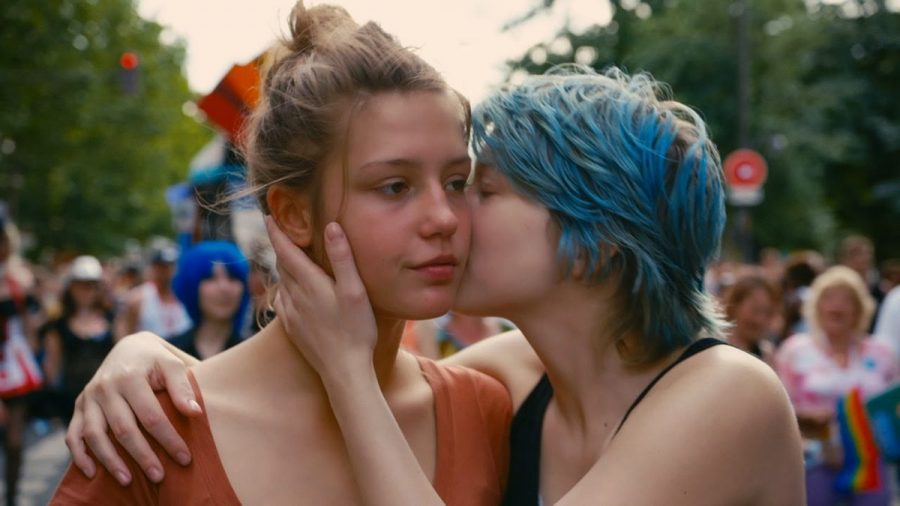Awarded the Palme D’Or at Cannes Abdellatif Kechiche’s Blue Is the Warmest Color (La Vie d’Adèle – Chapitres 1 & 2) is deserving of the award but still appears to be a daring choice. It’s NC-17 US certificate alienates it from their mainstream cinema, solidifying the idea that society is not ready for this raw depiction of all-consuming love that is literally laid bare before its audience. As inexperienced school girl Adèle (Adèle Exarchopoulos) meets Emma (Léa Seydoux), a blue haired art student, her life is changed for ever as she begins to discover herself and her desires.
Kechiche’s film is a vivid work of art, using tight close shots he is able to take his audience into the moment, pushing boundaries of personal space and creating powerful moments of sensual sexuality and freedom. From the moment Adèle is introduced to Emma the film sweeps its viewers along with their journey and is unrelenting as it explores young female yearning, love and sexuality. The beauty of this film lies with the casting, both Seydoux and Exarchopoulos are stunning as the ill-fated lovers, capturing what it means to really fall in and out of love. Exarchopoulous is stunning to watch, her transition from school girl to adult women is touching as she begins to really understand her wants and needs, and begin acting on her own wishes instead of being held back from those around her.
There is no doubt that Kechiche’s film is a masterpiece, but as the film draws to an end there is something about it which feels sadly predictable. There have been innumerable films which have explored the highs and lows of young, compulsive love, and they all end in a similar vain. But what does make Blue different though, is the beauty in which the story is told and the tender and passionate intimacy which seeps from the screen.
